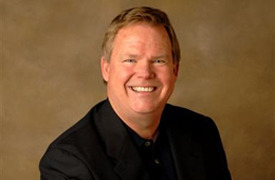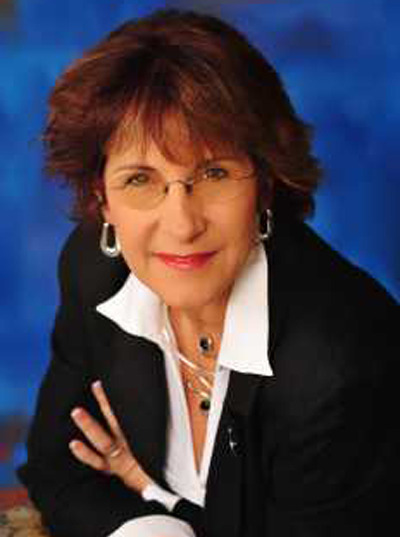Helene Lerner's Blog, page 122
February 3, 2014
What You Need to do to Start Thriving Today

Two weeks ago I was asked a great question while being interviewed on a radio show on the topic of “Thriving at Work and In Life. It was, “Alan, with all the stress, uncertainty and relentless change all around us, is it realistic to think about thriving?
You might be wondering the same thing. Maybe you are feeling challenged enough with work, family responsibilities and doing your best to get to the gym three times a week. Or you might be feeling the same way a client of mine is feeling as she told me last week, “I’m just plain exhausted and I don’t have time to think about thriving. Maybe when I get a better handle on things, but not now.”
What about you? Are you waiting to thrive in your life until things get better? Or are you ready to begin to thrive in life now? If so, here are three things you need to know:
Thriving isn't about going full blast, non-stop, for the sake of achieving yet another goal in our quest for "success," no matter the cost. It’s time we re-think our understanding about what it means to thrive in life.
You can begin to thrive immediately by shifting your mindset. Start by shifting your attention from what’s wrong at work or what’s missing in your life to focusing on what’s right in your life and what you have going for you.
Thriving begins with learning what you need to be happy, fulfilled and inspired. It’s about knowing that your needs are important and that you can’t thrive by ignoring them or by taking care of others while neglecting yourself.
We don’t have to wait to thrive until things slow down in life or until we solve all our problems. Thriving is a process that begins with a commitment to learning what we need to thrive and then by taking action to fulfill those needs.
Alan Allard, Executive Coach and Speaker
www.alanallard.com
February is a month to celebrate
NOTEWORTHY:
February is African-American History Month. Let's acknowledge the pioneering women and men who have created much-needed change in this country, and around the world.
Also, it is American Heart Month. "Heart disease is the leading cause of death for both men and women, but heart disease is preventable and controllable," according to the Centers for Disease Control and Prevention.
February 1, 2014
Career Coach: Welcome to February

Hello! I'm Alan Allard, and I'll be your career coach for the month of February. This month will be all about you, but before we get started, you might want to know a few things about me as well.
For the past eight years, I have worked as a consultant, executive coach, speaker, trainer and life coach. My current work deals with helping companies, teams, and individuals thrive in challenging times by improving performance and building resilience. I have a master’s and a doctorate in counseling and I spent 12 years working in private practice as a psychotherapist. I also wrote a book called Seven Secrets to Happiness!, which can be purchased here. On a personal note, I am married to my high school sweetheart and we have two incredible daughters (as well as two equally incredible sons-in-law).
Over the next few weeks, we'll be taking a look at what you can do to increase your success, fulfillment and happiness—both in your career and in your overall life. Please let me know in the comments if if there are any specific topics you'd like me to address. Thanks, and I look forward to another great month!
January 31, 2014
Why You Need to Look at Your Career Differently

In my last blog, I mentioned how storytelling is powerful for influencing others. Stories are also powerful for influencing and inspiring yourself. The stories we tell ourselves shape our attitude, perceptions, behaviors and ultimately our results.
When I was Vice President in an operating company and offered a move to a Director’s position at corporate headquarters, I immediately saw it as a demotion. While I saw many benefits to taking the position, I more acutely felt the insult when I noticed that all the women vice presidents who moved to corporate were made directors, while the men kept their vice president titles. I noticed that the story I told myself activated my defensiveness and motivated me to consider suing the company, wanting to complain about this injustice to friends, colleagues and family. I had crafted a powerful story for myself that made me a victim and had the potential to keep me stuck in my career.
I decided to consciously change my story. I imagined myself building my consulting practice with this move. I told myself this actually is a lateral move and not a demotion and there are many benefits to the vantage point that a corporate position offers. I highlighted the opportunity to build a vast global network with presidents and other key players in the operating companies, learn new skills, and build my reputation at corporate while adding value. I was the hero in my story and it helped me make the most of the situation, lifting my attitude and leading me away from the trouble the old story created. My new story inspired me to move forward and helped me be attractive to others who offered to assist me with my goals.
Here are some steps in making your personal story work for you:
Start with your goal. Since the story is primarily for you and you are the hero in this tale, what is the goal to which you aspire? It doesn’t have to be attainable right away, but should inspire you. What are the potential actions you want to take? Write down the key points, and the message. Once you have this crystallized, the rest of this process gets easier.
Choose the story. This is important. You want to be certain the story--and the way you tell it--makes some compelling and memorable points. For my story, I was ready to leave my job in the operating company because I had added value, accomplished my goals, and was ready for another challenge. Corporate was just the opportunity to move up to a position with a much larger scope of influence. Sound good?
Hone the story. Once you choose a story, construct it based on the message you want to deliver. Think about how you will tell it and how it makes you feel. Are you inspired? What obstacle did you face and how did you realize the opportunity for you? What are the actions you took, who helped you, and what assistance do you want now? Use vivid descriptive language. You want to tell the story in a way that allows another person to see and experience it; it is that experience that makes your story powerful.
Keep it short. Your goal is for your story to forward and solidify your message in a way that inspires you. Nothing more. So as you craft your story, do it with a knife, carving the story to its essential and important message. It can also help to write it out in a journal.
Share it. I shared my story with friends and colleagues and got some very positive feedback. As I told it, I found myself changing it over time to fit my journey. I considered specific word choices that would give me more energy and inspire courageous risk-taking.
Our career paths are journeys that unfold in unexpected ways. We can see these as problems and obstacles to which we fall victim, or ones we step into with heroic ingenuity. You are already a storyteller. You can use this power to influence your career and inspire others to assist.
–Andrea Zintz, PhD
Career Coach
President, Strategic Leadership Resources LLC
www.strategicleadershipresources.com
What You Need to Know About Inner Beauty
We asked our online community "What is inner beauty in you own words?" Take a look at their insights.
Video Editor--Alexa Payesko
January 30, 2014
What You Need to Know About Setting Priorities

We can learn a lot about power from women who have faced tragedy and transformed their lives despite it. I have been privileged to know some breast cancer victors who have re-evaluated their lives and their priorities as a result of having the disease. They are important role models for me. Let me share with you the insights that I have received from these courageous women. To seize power now. To make each moment count. To live fully. One woman told me that since her diagnosis, she lives each day as fully as she can, whereas before breast cancer she lived at about half of her capacity.
How often to we go around existing, rather than living? Thinking about what will happen next or what has passed, instead of living in the moment. Some breast cancer victors who have brushed with death know the value of the moment. They realize that all there really is—is NOW. This appreciation for how precious our time is can help us realize what our true priorities are.
Adapted from Our Power as Women. Conari Press, 1996.
January 29, 2014
Catalyst Announces 2014 Award Winners
Catalyst has announced this year's two award-winning initiatives that expand opportunities for women:
"Kimberly-Clark’s Unleash Your Power: Strengthening the Business With Women Leaders is a global, enterprise-wide initiative to address the organization’s need to look, think, and behave like the people who use and buy its products.
Lockheed Martin’s Women Accelerating Tomorrow comprises a variety of programs, processes, and tools to support women’s advancement as part of a broad strategic effort to attract, develop, and retain diverse talent in a highly technical and engineering-focused industry."
Way to go, Kimberly-Clark. I've worked with some fabulous women at the company: Sue Dodsworth, Sue Sears, Giusy Buonfantino. I'm so excited for you. Yay!
How to Use Storytelling to Powerfully Make Your Point

When I learned and practiced telling a good story, I noticed my ability to influence became more effective and powerful. My presentations became more interesting and inspiring, others remembered my key points, and I received enthusiastic feedback. Why? It’s no secret that people love good stories. We read books, go to movies. And when we hear a story in connection with a concept, we remember it better. Stories inspire and keep us hanging on the edge of our seat.
Storytelling is a powerful way to influence. There is an art and structure to it. Really anyone can tell a good story. After all, since we first learned to speak, we have spent our days telling stories to move our audiences.
“Heather, why did you pick that candy up off the ground and put it in your mouth?” You answered with a story.
“What possessed you to post that picture on Facebook?” You answered with a story.
“You are late again! What happened?” You answered with a story.
Stories connect us with ideas and insights in the only way that matters -- emotionally. Stories also move us to action.
My colleague, Jana Sue Memel, an award winning film writer and Hollywood producer and now a consultant who specializes in storytelling, unveils the structure of a good story:
Put what is in it for your audience at the introduction of your story. Until they know what is in it for them, your audience is not focusing on what you have to say. Make sure that you start off your presentation by letting your audience know how taking the action you want them to take is going to benefit them.
Stories need:
A hero -- which can be you, your product, your business, or someone using them to great advantage.
An obstacle -- often times the situation the audience you are in front of is facing.
The hero conquering the obstacle.
Set the scene: create context
“I was meeting with a colleague last week in a small town in the middle of nowhere…”
Use key words: “What if”…”Imagine that…” ”You know when…”
Create characters the audience can relate to, and then use them. Here are some examples:
“He’s got a hundred employees, but he knows everyone of them by name.”
“She’s got everything riding on the outcome of her project right now, so Saturday is just another work day.”
“She’s got a wonderful opportunity at a different company she’s had on her wish list for years, but has been promised a promotion within this year.”
Paint a picture in words that immediately puts the audience in the room with the characters and keep them there. This creates a visual connection for the audience.
Say only enough to hook the audience. When preparing, constantly ask yourself, “Could my audience learn what I need them to, in order to take the action I want them to without this piece of information? Is this piece of information something my audience is going to be able to remember and repeat?” Any information that doesn’t receive a resounding, “Yes” does not belong in your story.
Tell only the parts you are passionate about. Passion counts! Tell the funny, scary, dramatic, and emotional parts.
Use your body. First impressions count. An audience decides if they are going to like you somewhere between eight and thirty seconds from first seeing you. Eighty percent of this decision is made based on non-verbal clues.
Body language, eye contact, vocal pitch, tone and pacing are all key elements in placing the audience in the world you want them to inhabit. In order for an audience to respond to your presentation in the fashion you desire, you must get the audience to like and trust you. Once an audience has made a judgment about you, everything you say or do is going to be filtered through that judgment. Body language broadcasts.
Finish with a flourish. End on an “up” note even if it’s a down story.
Good stories take you on a ride. If the audience connects with you as the storyteller and what you are saying, they will actually see the story in their mind. They’ll identify with the characters; they will get emotionally involved. Good stories are memorable, repeatable and actionable. Get your audience to do what you want – even if it is remembering your story. Try it out and practice with a friendly audience, then ramp up your influence with a good story.
–Andrea Zintz, PhD
Career Coach
President, Strategic Leadership Resources LLC
www.strategicleadershipresources.com
January 28, 2014
Why You Need to Understand Emotions to Avoid Arguments

“I hear what you’re saying, but…you’re wrong!” How many times have you used that phrase? How many arguments have you started as a result? Arguments are unforgiving. You can’t take back what you say. It’s like trying to apologize to the glass you dropped on the floor. “I'm sorry,” won’t glue the pieces back together.
And why argue over opinions anyway? They are just concepts; there’s no actual turf (other than the ego) that arguing defends. The threat we feel when we argue kicks off the “fight or flight” mechanism. The body becomes flooded with stress hormones and the thinking part of the brain literally shuts down.
So, if you’ve been getting caught up in opinion wars, you have not been thinking clearly or objectively.
Some helpful tips to help you stay out of an argument:
Stop Trying to Win
Think of others’ opinions as experiences that are connected to emotions. So, when you try to discredit or win, you are essentially saying, “Hey, your experience doesn’t count.” Experiences are valid proof of why people feel the way they do, which is why people can justify their opinions. Let it go.
Never Say “You’re Wrong”
It is not respectful to send someone’s opinion down the garbage shoot. Look for one aspect of the person’s opinion you can agree with:
Clarify what you’ve heard. “You said that dogs are too much work so you don’t like them as pets.”
Agree on a point. “I can understand that as a busy person, it can be too much to really enjoy the company of a dog.”
Do not insert BUT or HOWEVER.
Add Your Opinion
“I have found a way to balance my schedule so that I can enjoy my freedom and my dog.”
Just the Facts, Please
A great way to prevent getting emotionally charged is to use facts to replace feelings. Instead of, “Dogs are the best creatures in the whole world!” say, “Research suggests that when people have dogs, they live longer, healthier lives.”
And the Final Word Goes To…
Both of you. If you let go of the need to be right and make it your goal to give the other person the latitude, you will create the space to be heard. This method creates equal footing on the matter, mutual respect and a well-avoided argument.
Jackie Kellso
PointMaker Communications
Brain-Based Coaching
Interpersonal Skills and Communications Expert
January 27, 2014
Zain Verjee on Authenticity and Being a Leader
[image error]
Helene recently spoke with CNN International's news anchor Zain Verjee about her career choices, the power of women and her wishes for girls worldwide.
Helene: Who early on saw something in you that might not have seen in yourself?
Zain: Upon reflection, I would say two people--one was my dad, Johnny, who really encouraged me to pursue a broadcast career. I was halfway through a masters’ degree and my parents, especially my dad, said, “You know, why don’t you pursue something here. You’re on the radio--you like talking--people are listening. Maybe this is a career you should be thinking about.” It’s hard for any parent to encourage their child not to finish their degree, but he was very supportive.
The second person was Phil Matthews, who ran the radio station at the time.
Helene: This was when you lived in Nairobi?
Zain: Yes. It was Capital FM in Nairobi and it had just started. It was Nairobi’s first private radio station -- everything else had been state controlled.
Helene: So Phil saw something in you…
Zain: Yes, he saw my potential. He helped train me and I listened to him. I started off reading the traffic news update, then, I did the love show at night. I was 23 at the time.

Helene: How did you grow your career in journalism?
Zain: It was a combination of having champions who believed in me, and working really hard-- being there when the right opportunity came up. I didn’t say no to anything that came my way. I was willing to learn and try everything--to take and actively seek feedback.
Helene: What was the most important piece of feedback you were given?
Zain: I think it was to be myself and not try and replicate what I thought a news anchor or news reporter should be like. To seek my own authentic voice, language, style, experience. And I have to say it took 10 years for me to find that and to be comfortable with my own abilities.
Helene: When I see you on television, I think, “Wow,” she’s authentic.
Zain: Thank you. I appreciate that. I’m really glad you said that because the whole idea is to be more accessible. I prefer now being much more conversational, much more “me”, and really trying to find ways to connect.
Helene: Talk about an obstacle in your life that has taught you some important lessons.
Zain: The main obstacle has been my psoriasis and skin disease. I’ve learned from that experience that no matter what you perceive a person to be, they have their own struggles. I’ve learned to approach people without as much judgment. The psoriasis has also made me more compassionate.
Helene: Did you feel that people judged you?
Zain: Yes. I could hide my condition better than some but what about the people that can’t and are judged or laughed at?
Helene: So you felt the stigma.
Zain: Yes, I really did. And it affected the way I interact with people now because I always try not to stare, or just to approach them with compassion.
Helene: So the psoriasis made you more sensitive to what other people are going through in their own lives.
Zain: Yes. Even now, I’ll pick up on things more. I’m very understanding when someone has to go the hospital, or has an issue, or is struggling. I’ve written about this. You don’t really know what that person is made up of or what their experiences are, no matter how fantastic they might look.
Now I feel liberated by sharing my experience. I feel empowered. I’m happy that I’ve received such fantastic feedback from people who are also going through similar things not just with a skin disease but with any kind of illness. It’s a process and there are solutions. You’re not the only one.
Helene: Why is it important, at this moment in time, for women around the globe to step up and let their voice be heard--try things they have not done before?
Zain: I think people are acknowledging that when you educate and empower women, you educate and empower families, communities and countries. Even in societies where women don’t have as many rights as others, there are still people who speak up and speak out. They have a transformative impact on their immediate societies and then in the long-term, a wider society. Because of technology--it’s becoming easier to try things they’ve not done before. For example, look at the mobile phone and how that’s changed banking and women’s ability to control their finances, or using technology to be able to educate and connect.
Helene: And especially with your lesson, of sharing one of your secrets… If we can face some of our secrets and know that it’s ok to be forthright, then we can use our energy to step up and help other women.
Zain: Exactly. And I would add that I believe strongly in mentoring. Whether it’s just one person you’re helping or a large group of women, I think having role models is very important.
Helene: Absolutely. We need to pay it forward. Lastly, what’s your wish for young girls on the planet?
Zain: My heartfelt wish is for them to have self-esteem and to feel that they’re good enough. That no matter what obstacles there are--there may not be an easy way--but there is always a way to accomplish what you want. At the core of it, is a girl’s belief in trying--and more importantly the sense of having value and self-worth. Self-esteem is at the core of everything that can be grand and everything that is not.

Helene Lerner's Blog
- Helene Lerner's profile
- 9 followers



